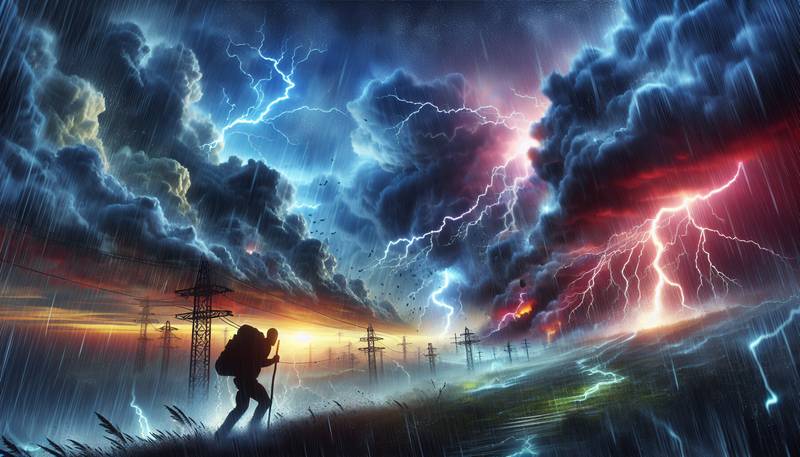Natural Disasters: Essential Electrical Safety Protocols

When Lightning Strikes Twice… Or Just OnceEver been caught in a storm and thought, 'This is just like a scene from a disaster movie—where's my hero?' In real life, though, the only hero you have is your emergency preparedness. Whether it’s a sudden blackout caused by a storm or a surprise visit from Mother Nature herself (who never lets you forget who’s really in charge), understanding how to safely navigate electrical hazards during these times can save you from becoming a headline in tomorrow’s news. Understanding the ZapsElectrical hazards during a natural disaster might seem about as daunting as trying to explain to your grandparents how to use a smartphone. It's complex, a bit shocking, and a lot of folks are bound to get mixed up. The key dangers include:- Downed power lines
- Flooded electrical systems
- Lightning strikes
- Overloaded circuits
These hazards can send shivers down your spine—like watching the last slice of pizza disappear during game night. So, let’s break down these paralyzing possibilities in a way that won’t cause a short circuit in your brain.Downed Power Lines: A Shocking RealityImagine you’re enjoying a cozy evening with your favorite blanket when suddenly the power goes out. You’re left in darkness, which, in hindsight, is perfect for a horror movie marathon. But before you start that spine-chilling entertainment, remember that falling trees can bring lines down with them. The bright side? You get an unexpected opportunity to test your flashlight batteries.If you encounter downed lines, treat them like your annoying neighbor who insists on borrowing your tools—stay away! Call your utility company and pretend you’re on a reality show where you never have to deal with it directly. Flooded Electrical Systems: Water You Doing? When flooding occurs, your electrical systems can take a real hit—this isn’t your average water balloon fight. If water meets electricity, you’re in for a shocking experience (and not the kind you’d want). Here’s what to keep in mind:- If you know a flood is coming, turn off your electric power before the water arrives. Consider it a preemptive strike.- Never enter floodwaters unless you are absolutely certain that the power is off. Swimming with electrical appliances sounds like the worst Netflix special idea ever.It’s almost poetic how water and electricity mix—two elements that should definitely not be friends.Lightning Strikes: The Original Energy DrinkIf you think about it, lightning is nature's way of reminding us that we are not the most powerful forces on this planet. If you are caught in a storm, take cover indoors. And for the love of all things shocking, avoid using a landline phone; you’re not auditioning for “Who Wants to be Electrocuted?”Here’s a pro tip: Stay away from windows and anything that can conduct electricity. That means no touching the toaster or your beloved vintage record player until the storm passes. Overloaded Circuits: Don't Play the Blame GameWhen the power goes out, we often have the urge to pull out every extension cord and plug in every device we own—because who doesn’t want the Wi-Fi back in a hurry? But overloading circuits can lead to fires, which is about as exciting as a live performance by an amateur magician gone wrong. Here’s how to avoid being a magician’s next failed trick:- Unplug devices and appliances that aren't in use.- Use power strips wisely; they are support players, not your main act.- Consider investing in surge protectors, which are like the seatbelts for your electronic devices.Don’t Let Your Safety Go Up in SmokeWhen it comes to natural disasters, having a plan for electrical safety is key to keeping yourself and your loved ones safe. Think of it like your favorite recipe—follow the ingredients, and you’ll whip up something delicious instead of a disaster. Whether you're preparing for a storm, monitoring flood risks, or dodging lightning bolts like a seasoned quarterback, staying informed and proactive is your best offense. Besides, you don't want to be the person who leads the news segment discussing how they tried to charge their phone during a hurricane. Remember, in the world of electricity and nature’s surprises, it’s better to be safe than zapped!
|
|







